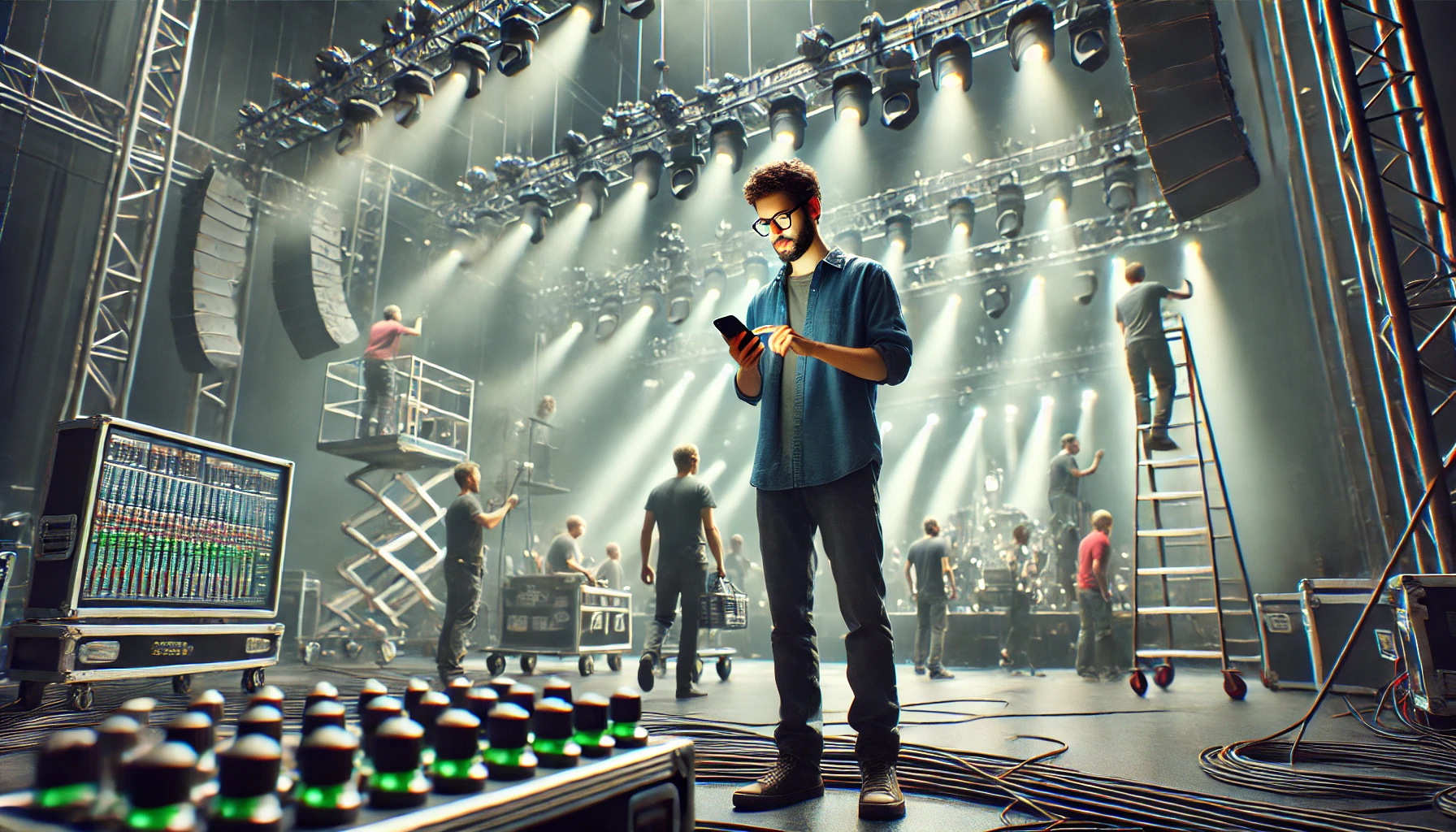Rhymes on the Map: How to Organize a Rap Show in a New Event Market
The music industry as a whole is blasé about the constantly emerging genres, new waves, performers, and shows that should surprise, not overwhelm or bore. So as to make any concert memorable and profitable as well, rappers, just like any other performers, in collaboration with their teams should stage unique performances and consider even the slightest details, such as designs, logistics, general management, and location.
Knowing what your fans may love is the key, and this might be achieved with the use of versatile tools, which include audience analysis systems, free phone number tracker apps, predictive modeling tools, software for management, and more. But how to plan a rap concert properly?

Your Audience Does Matter
Audience analysis is the first thing that should be done while planning an upcoming concert or tour, especially when it is to be held in a new environment. Planning the event with a deep understanding of what your fanbase is may help one meet their expectations more successfully.
What the rap team should primarily do is investigate the local demography and musical preferences first. Surveys, social media, and local music forums may all together provide valuable insights about what appeals to the audience and which percent of the population may like your music in particular. Soon after you have an overview of who the audience is, adapt the event to suit their interests, e.g., find a local band/musician to perform with.
By the way, even those performers at the start of their careers should seek partnerships with local businesses, artists, and influencers to broaden their audience and build trust. Hence, both sides may benefit from such a collaboration, reach a wider audience, and gain access to different channels of communication, too.
Site Selection: How to Choose a Right Venue
When it is made apparent that the show might be a success, it is time to find an appropriate location for a concert to be held. At this point, there are literally thousands of aspects to take into consideration, from the most obvious capacity and acoustics to aesthetics and budget, too.
The expected attendance is actually the first thing to think, predict and analyze. This is why it is important to select a location that may allow one's audience to feel comfortable in different zones. The audience hall layout also plays a significant role, for some concerts may presuppose active engagement and, therefore, cannot tolerate an abundance of seats but a pit box, etc. Make sure the arrangement makes it a convenient place for optimal sound and visibility from all perspectives.
Moreover, rap always requires high-fidelity audio, so a thorough examination of the technical characteristics of the location, including the lighting, sound, and stage equipment, is vital. Lastly, choose a location that enables easy scheduling and setup flexibility. A helpful venue staff can also help with all the details, from security to tickets, to guarantee an effortless event run-through.
So as to choose the most suitable place, the majority of professional artists employ location-tracking technologies that help them inquire insights regarding the particular area, analyze the neighborhood, and see how easy it is to get to this place, too.

Why Location-Tracking Apps?
With the use of location-tracking software, the team can smoothly determine the regions that are likely to have a high concentration of potential attendees and focus their marketing efforts accordingly. This can lead to a rise in ticket sales and the development of a more focused marketing plan in the end. Moreover, such apps may promote events and provide updates to guests' smartphones via geofencing when they approach designated areas or implement advertising campaigns effectively.
As soon as the potential audience has been reached, the performer's team may provide tailored recommendations to improve their entire experience and facilitate concert attendance at last.
Budget Management and Financial Planning
Another factor that touches upon the possibility and potential of the show is the budget. Although it is mainly the responsibility of a manager to plan the financial aspect of the concert routine, performers should be aware of how to make a realistic budget based on their expected income (including merchandising, sponsorships, and ticket sales) and expenses in the first place.
So as to identify key expenses, list any significant source of money spent, e.g., marketing, artist fees, production costs, venue rental, staff wage, and smaller costs like permits, insurance, and transportation. It is worth mentioning, too, that there should be prioritized those expenses that mostly affect how well the event goes. Increase the amount of resources dedicated to aspects that directly impact audience happiness, such as sound quality in the first place.
Important! A certain amount of your budget should be set aside for unforeseen costs in order to address any problem without sacrificing the quality of your event. Let us recapitulate it again: choose a team of specialists whom you trust for them to manage all your financial issues on a professional level. This is the only way for all of you to benefit from this experience and get the best experience possible with minimal risk.
Logistics and Event Planning
Anyway, successful logistics and event planning, powered by location-tracking technologies and relevant tools, are also crucial for seamless performance, be it a rap show or a rock concert. During this stage, one may either waste lots of money on unnecessary movements or spend it wisely and reasonably, which is especially vital for a new artist who cannot afford to make mistakes. Here are a few rules to follow so as to get through this phase with the most fruitful outcomes possible:
Develop a thoroughly detailed schedule that includes every stage of the event, e.g., reserving musicians, obtaining licenses, and choosing the location.
Build up a trustworthy and responsible team to manage all aspects of the event and organize regular meetings to check the progress.
Examine local regulations and secure any required permits well in advance, especially when it comes to visiting a new country.
Verify if all technical requirements, such as those for lighting, sound systems, and stage equipment, are fulfilled.
Coordinate travel and hotel plans for the crew and performers from the very arrival till departure promptly.
Hire a committed staff to handle on-site logistics on the day of the event and after the show as well.
Let’s Play the Game: Executing the Show
Finally, the most interesting part of the show preparation has come – the performance. Yet, the task of any artist is to perform and not worry about other “mundane” tasks which are to be carried out by their team. Still, one should be involved in the process of show management and check if everything has been done before the show.
First of all, make sure everything is alright more time before the event, verify the schedule, and check if all equipment is tested and set up properly (though there should be a technical staff responsible for this part). To sustain the energy, think about hosting an after-party and/or meet-and-greet for your fans. This can improve the entire experience, promote audience participation, and raise their loyalty. Nevertheless, do not forget about security!
As a part of a global artistic world, you are always encouraged to analyze the location data of your guests to learn more about on-concert habits and enhance future event preparation. This can aid in improving venue selection and organizational efficiency to the fullest.